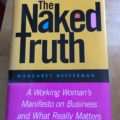The transgender “issue” has come increasingly to the forefront of social consciousness in many parts of the world, and I’m baffled at the desperate attempts of some to feel threatened by trans people. My experience of transgenderism (as of so many things) is unusual.
I lived five years of my childhood in Bangkok. My dad and stepmother lived in Thailand again while I was in high school, so I spent several vacations from boarding school there as well. While I never studied Thailand in depth (as I did India), Thai culture seeped into my consciousness, admittedly through the filters of expat life.
Even as a child, I was aware of a subculture in Thailand of what were then called (by westerners) transvestites. The Thai term is kathoey, which I use with caution because it can be derogatory. I may have had more exposure to this than some: the area where we lived (both times) in Bangkok was called Saphan Kwai (Buffalo Bridge) but nicknamed Saphan Kwei – Queer Street. Kathoeys tended to be noticeable because they were so gorgeously dressed and made up. They were often simply inherently beautiful, and could be hard to spot as anything other than cis women. Many made their living in sex work and/or entertainment (yes, growing up in Thailand I was also very aware of prostitution). I sensed that kathoeys were not entirely accepted by Thai society, but I was too young to understand the implications of that.
During high school I lived in India, where hijras have been a recognized gender identity for millennia. They are not entirely accepted today (likely as a result of colonial oppression), but nonetheless have a cultural niche and legal recognition in South Asia.
When my daughter was in high school in Italy, one of her best friends was, we all assumed at the time, a gay boy. Sometime after I left Italy, this person started hormone treatment through the Italian public healthcare system, and eventually put together the money to have gender reassignment surgery in Thailand (GRS is available via the public system in Italy, but it would have been a long wait).
So transgender has been a subtext throughout my life, to an unusual degree for an American of my generation. I also imbibed my parents’ hippie mentality: “Be free. Be whoever you are, do whatever you want to do – just so long as you don’t hurt anybody.”
Living in the very liberal Bay Area and working in tech brought transgender people more into focus for me. A few years ago I attended Adacamp in SF, a tech unconference for women which welcomed “anyone identifying as a woman,” including one person whom I’d previously met as a man, who showed up with a full beard, wearing a dress. “Ok, they’re on a journey,” I thought. There may have been other trans women there, certainly plenty of lesbians and straight women of all shapes and flavors, and no one minded anyone as far as I could tell. It was one of the best conferences I’ve ever attended.
My own gender expression, well… I’ve never been very good at acting “typically feminine.” I was never a girly girl (zero interest in baby dolls or Barbies). In adolescence I cared desperately to be thought attractive by boys, but I was only willing/able to go so far for beauty. Most of the time I couldn’t and can’t be arsed to try to look “feminine.” Still, even in a butch haircut, jeans, turtleneck, and boots, my own identity as a woman has rarely been questioned. (I’ve sometimes been assumed to be lesbian.)
Then, too, “masculine” and “feminine” can mean so many things in so many cultures, and much of the time those definitions are harmfully applied. So those are concepts I do not want to police, have opinions on, or use to define anyone.
Biology? I’m not a scientist, but as far as I can tell, the biology of sex and gender is very complicated, and cannot be reduced to binaries.
Does life experience make a person a woman or a man? Well, which life experience exactly? Not everyone with a uterus has babies or even periods. Not everyone is a spouse or parent. I can’t think of any traumas that are unique to women, though there are many that women proportionally suffer more. Men can be and are abused, molested, discriminated against, and raped. Trans women suffer those things even more than cis women.
When I am forced to think about being a woman, it’s often because, as a woman, I am physically or otherwise vulnerable. Or because someone has opinions about how I should run my life, career, relationships, etc. based on my woman-ness.
It isn’t easy being a woman, and rarely has been easy, in any time or place. Everyone knows this, and everyone who is honest admits it.
The people I’ve seen coming out as trans women in tech are all very intelligent. They knew they would be giving up male privilege, though they may not have understood how much – my friend Amy has some fascinating observations on this. And yet… they persisted. Even though transition is not easy in any way.
I conclude that they must feel very strongly that they are women and want to be identified as women, in the face of the huge forces aligned against them. I also assume that feeling yourself to be a woman while presenting and being treated like a man is a real trauma – different from the traumas of growing up as a woman, but trauma nonetheless.
My attitude towards trans women therefore is: “You know how hard it is to be a woman. If, knowing all this, you believe that you are and want to be seen and treated as a woman: welcome to the sisterhood. Because it’s really fucking hard and we should all be here for each other.”
Footnote:
Are there bad actors who might abuse this welcome? Undoubtedly. Just as there are potentially bad actors in any space, group, and situation. Having been raised a bleeding-heart liberal, it was a moment of maturity for me (years ago) to realize that some oppressed people can also be dangerous or just plain assholes, for reasons that may or may not have anything to do with their axes of oppression. Their bad behavior does not negate their lived experience and their own real trauma.




